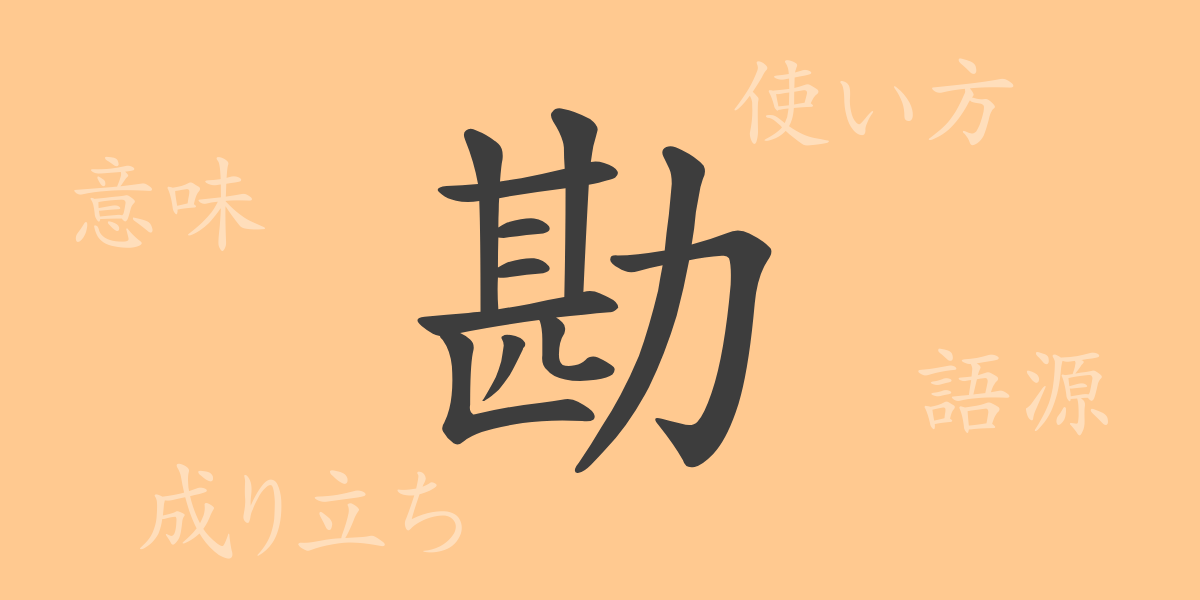The Japanese language is rich with kanji characters that carry unique nuances. The kanji “勘” (Kan) is often used in daily conversations and business settings to describe a sense of intuition or sensitivity unique to the Japanese people. In this article, we delve into the origins, meanings, and usage of the kanji “勘” (Kan), as well as explore its charm through idioms and phrases that use it.
Origins of Kanji “勘” (Etymology)
The kanji “勘” (Kan) originated from ancient Chinese classics and has evolved uniquely in Japan. It was originally used in the term “勘案” (Kannann), meaning to think over and scrutinize matters. Over time, “勘” (Kan) came to refer to intuition or a flash of insight and became widely used among Japanese people.
Meaning and Usage of Kanji “勘”
The kanji “勘” (Kan) has multiple meanings. Generally, it refers to an intuitive understanding or the ability to see the essence of things without relying on learning or experience. It is also used to express a sense or premonition about a particular event. Common phrases include “good intuition” 勘がいい(Kan-gaii), “to use one’s intuition” 勘を働かせる(Kann-wo-hatara-kaseru), and “to dull one’s intuition” 勘を鈍らせる(Kann-wo-nibu-raseru), which are used to describe the sharpness of one’s intuition or senses.
Readings, Stroke Count, and Radical of Kanji “勘”
The kanji “勘” (Kan) reflects its origins and the depth of its meanings.
- Readings: On’yomi is “かん” (Kan), there is no special kun’yomi
- Stroke Count: A total of 14 strokes
- Radical: Power 力 (Tikara)
Idioms, Phrases, and Proverbs Using “勘” and Their Meanings
There are various idioms, phrases, and proverbs that include the kanji “勘” (Kan), such as:
- 勘定 (Kannjyou): Meaning accounting or calculation, as well as the act of making a payment.
- 勘繰る (Kanngu-ru): To suspect or speculate about something with skepticism.
- 勘ぐり: (Kann-guri)Unnecessary suspicion or speculation.
- 勘三郎 (Kannsaburou): One of the stage names of the Edo-period Kabuki actor Ichikawa Danjūrō.
- 勘が鈍る (Kann-ga-nibu-ru): To become less intuitive or less perceptive.
These idioms and phrases are often used in everyday life, showcasing the richness of expression in the Japanese language.
Conclusion on Kanji “勘”
The meaning embedded in the single kanji “勘” (Kan) reflects the subtlety of Japanese culture and the value placed on human intuition. This word, widely used from business to daily life, is an indispensable element of communication among Japanese people, and its usage continues to evolve with time. Through this article, we hope you have gained a deeper appreciation for the profound nature of the kanji “勘” (Kan) and enjoy a richer world of words.

























